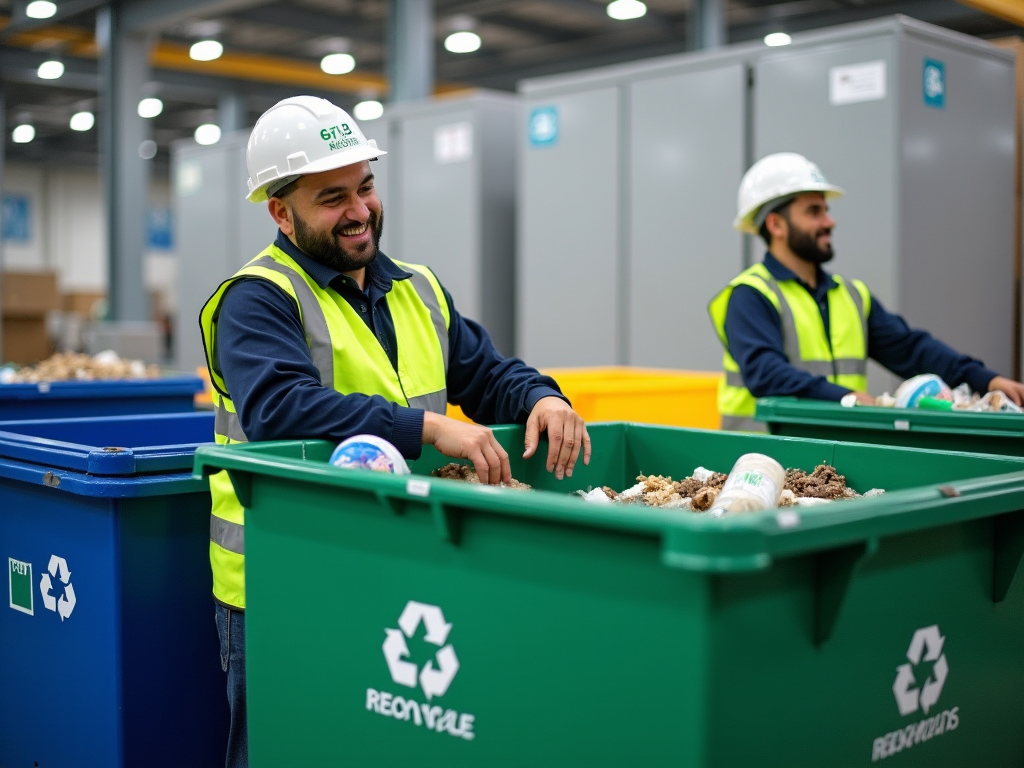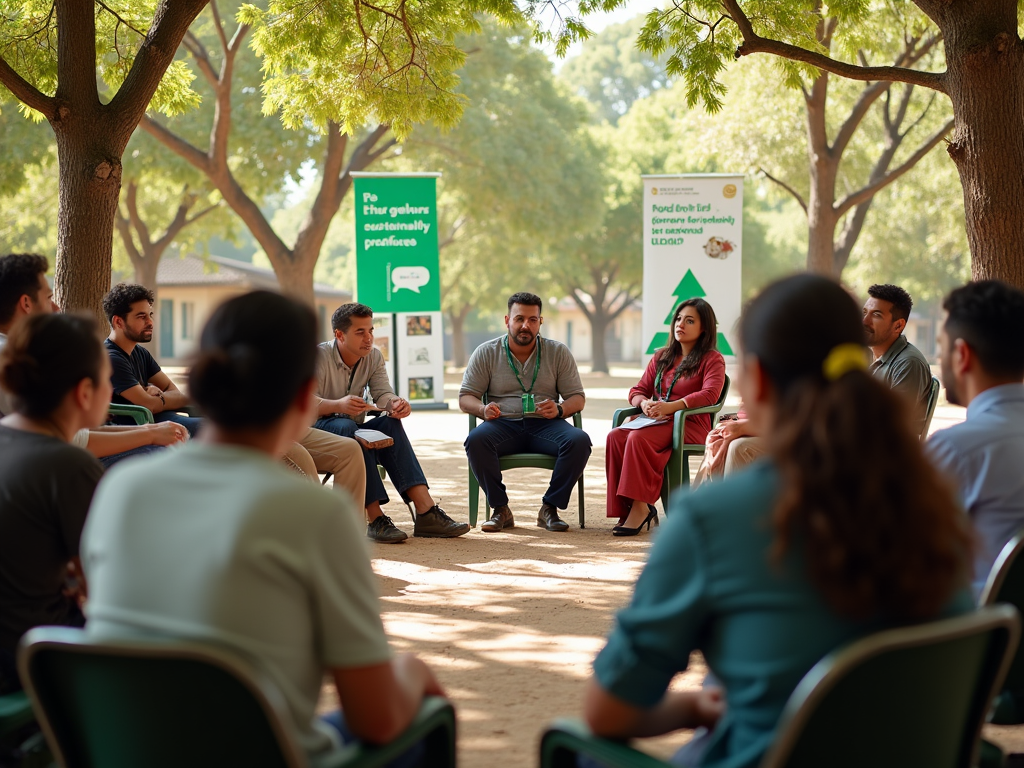KIZAD (Khalifa Industrial Zone Abu Dhabi) is at the forefront of integrating robust environmental regulations with sustainability initiatives aimed at fostering economic development while preserving ecological integrity. This article will explore the various environmental regulations KIZAD has implemented, alongside its innovative sustainability initiatives that reflect a commitment to a greener future.
Overview of Environmental Regulations in KIZAD

The regulatory framework at KIZAD is designed to ensure that industrial activities comply with both local and international environmental standards. These regulations encompass several critical areas, including waste management, emissions control, and resource conservation. KIZAD emphasizes the importance of adhering to the following:
- Waste Management: Strict protocols are in place to manage hazardous and non-hazardous waste effectively.
- Air Quality Control: Industries must adhere to limits on emissions of harmful air pollutants.
- Water Conservation: Regulations ensure efficient use of water resources, including recycling and reclamation initiatives.
- Noise Control: Guidelines are provided to manage noise emissions to protect community and wildlife health.
- Biodiversity Protection: Measures are implemented to preserve local habitats and species.
By enforcing these regulations, KIZAD ensures sustainable operations while encouraging industries to adopt environmentally friendly practices. These regulations are not just a compliance requirement; they serve as a framework to stimulate innovation in environmental management.
Sustainability Initiatives at KIZAD

KIZAD has launched a variety of sustainability initiatives designed to minimize environmental impact while promoting economic growth. These initiatives incorporate cutting-edge technology and innovative approaches to create a more sustainable industrial environment. Key initiatives include:
- Green Building Standards: KIZAD encourages construction projects to adhere to sustainable building principles, promoting energy efficiency and reduced carbon footprints.
- Renewable Energy Projects: The utilization of solar energy for power generation has become a hallmark of KIZAD’s commitment to sustainability.
- Sustainable Transport Solutions: Initiatives are in place to promote the use of electric vehicles and other eco-friendly transportation options within the industrial zone.
- Community Engagement: KIZAD actively involves local communities in sustainability programs, fostering an overall awareness of environmental issues.
By embracing these initiatives, KIZAD not only meets regulatory standards but also leads by example in the industrial sector, showing that economic development can coincide with environmental stewardship. The zone is becoming a model for integrating business practices with sustainability principles.
Collaboration is a key component of KIZAD’s approach to environmental sustainability. The zone engages with various stakeholders, including government agencies, NGOs, and private sector partners, to enhance its sustainability efforts. Partnerships often focus on:
- Research and Development: Collaborations promote innovation in clean technologies and sustainable practices.
- Environmental Education: Stakeholder engagement includes training and awareness programs to educate employees and community members about sustainability.
- Resource Sharing: Partnerships facilitate the sharing of resources, technology, and best practices to maximize efficiency and reduce waste.
- Monitoring and Reporting: Joint efforts to monitor environmental performance metrics help maintain transparency and accountability.
Through these partnerships, KIZAD leverages collective expertise to tackle complex environmental challenges, further embedding sustainability into its operational ethos.
Future Directions for Environmental Sustainability
KIZAD is not resting on its laurels; it continues to assess and evolve its sustainability strategies to address emerging environmental challenges. Future directions may include:
- Carbon Neutrality Goals: Setting ambitious targets to achieve net-zero carbon emissions across the industrial zone.
- Advanced Waste Minimization Techniques: Implementing circular economy principles to minimize waste generation.
- Smart Technology Integration: Employing IoT and smart technologies to enhance energy efficiency and resource conservation.
- Expanded Renewable Energy Usage: Exploring new avenues for renewable energy sources to power operations.
These forward-thinking approaches affirm KIZAD’s role as a leader in sustainable industrial practices in the region, ensuring a balance between industrial growth and environmental protection.
Conclusion
In conclusion, KIZAD exemplifies how thoughtful environmental regulations and proactive sustainability initiatives can converge to create a responsible framework for industrial growth. By adhering to stringent environmental policies and embracing innovative sustainability practices, KIZAD not only minimizes its ecological footprint but also enhances economic resilience. As it continues to evolve and adapt, KIZAD sets a benchmark for integrating sustainability within industrial zones, making strides towards a greener, more sustainable future.
Frequently Asked Questions
1. What is KIZAD?
KIZAD, or Khalifa Industrial Zone Abu Dhabi, is a special economic zone designed to boost industrial, manufacturing, and logistics activities in the UAE, promoting investment and business growth within a sustainable framework.
2. How does KIZAD enforce environmental regulations?
KIZAD enforces environmental regulations through compliance checks, monitoring mechanisms, and collaborations with local and international environmental agencies to ensure adherence to standards.
3. What sustainability initiatives are implemented in KIZAD?
KIZAD implements initiatives such as green building standards, renewable energy usage, waste management protocols, and community engagement programs to promote sustainability.
4. How does KIZAD partner with other organizations for sustainability efforts?
KIZAD collaborates with government entities, NGOs, and the private sector to share resources, technology, and innovative practices aimed at improving sustainability outcomes.
5. What are KIZAD’s future sustainability goals?
KIZAD aims to achieve carbon neutrality, enhance waste minimization efforts, integrate smart technologies, and expand its use of renewable energy in the coming years.


